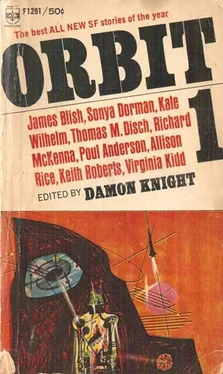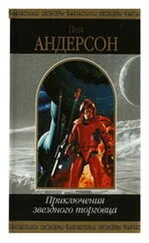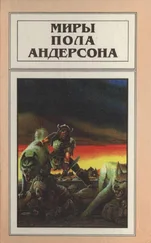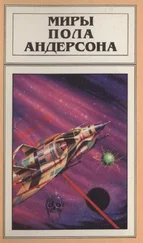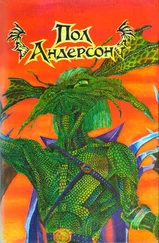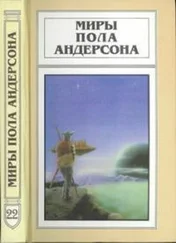Пол Андерсон - Orbit 1
Здесь есть возможность читать онлайн «Пол Андерсон - Orbit 1» весь текст электронной книги совершенно бесплатно (целиком полную версию без сокращений). В некоторых случаях можно слушать аудио, скачать через торрент в формате fb2 и присутствует краткое содержание. Год выпуска: 1966, Жанр: Фантастика и фэнтези, на английском языке. Описание произведения, (предисловие) а так же отзывы посетителей доступны на портале библиотеки ЛибКат.
- Название:Orbit 1
- Автор:
- Жанр:
- Год:1966
- ISBN:нет данных
- Рейтинг книги:4 / 5. Голосов: 1
-
Избранное:Добавить в избранное
- Отзывы:
-
Ваша оценка:
- 80
- 1
- 2
- 3
- 4
- 5
Orbit 1: краткое содержание, описание и аннотация
Предлагаем к чтению аннотацию, описание, краткое содержание или предисловие (зависит от того, что написал сам автор книги «Orbit 1»). Если вы не нашли необходимую информацию о книге — напишите в комментариях, мы постараемся отыскать её.
Orbit 1 — читать онлайн бесплатно полную книгу (весь текст) целиком
Ниже представлен текст книги, разбитый по страницам. Система сохранения места последней прочитанной страницы, позволяет с удобством читать онлайн бесплатно книгу «Orbit 1», без необходимости каждый раз заново искать на чём Вы остановились. Поставьте закладку, и сможете в любой момент перейти на страницу, на которой закончили чтение.
Интервал:
Закладка:
Mary doubled back, passing the king-size domes that held the town distillation plant. The per capita consumption of fresh water was fifty percent higher for Sea People than for Terrestrials. Frequent bathing was necessary to remove ingrained salt from the skin; supplying salt-free water was one of the biggest problems of the ocean-floor settlements. Beyond the distillery was the airworks. The electrolyzers reached halfway to Surface, each mass of tubes contained in an insulating shell of helium. The current for the oxygen separation came from strategically sited tidal generating stations up and down the coast. Many domes were already on tap from the plant; eventually they would all avail themselves of the new municipal service, though they would retain their own gear as a fail-safe in case of emergency.
Mary swam round the huge stacks, peering into locked shadows, calling softly through her mask. “Jen. . Jen. .” The harness pack radiated the word into the water, farther than a human voice could reach in air, but there was no answer. She clung to a steel stay twenty feet above the seabed. Bubbles curled up from her in a shimmering stream as she tried to quiet her breathing. A group of children went by, out late and swimming fast; she heard their chattering, realized with a cold shock how similar it was to the noises of a fish herd in the hydrophones. She shivered. Thoughts like that had been plaguing her for months now, maybe years. She called urgently, but the child-shoal swerved aside, accelerating and vanishing in the gloom. There was quiet; beside her the great cans vibrated, the sensation more felt than heard. The stay seemed to buzz in her fingers.
She let go quickly, because electrolyzer stacks cannot make any sound. She concentrated. That deep, thudding boom. . Was it her heart, or just fear, or was there something. . something else. . No, it was gone. Slipped over the edge of perception, into silence. She started to swim again, thoughts churning confusedly. She remembered a conversation she had had with her husband weeks back. They had been lying abed after his shift had done; the house had been silent, or as silent as it could get. Just the airplant, buzzing in the dark. .
She had spoken to blackness. “Jack,” she had said, wondering at herself, “the Deeps. Have you heard what they’ve been saying about them — that they talk?”
“I’ve heard a lot of rubbish.”
She said, “They talk. That’s what the kids say. Jen. . she says she’s heard it a. . thing, I don’t what. A calling. Jack, be serious, listen to me. .”
“I am serious,” he said. “Completely. Mary, there’s nothing in the Deeps except one hell of a lot of water, at one hell of a pressure. Oh, there could be a slip somewhere, volcanic activity maybe, a long way down, that would send up pressure waves, you might be able to feel them, but that’s all. I’m an engineer, I’ve been working with the sea more years than I want to think about, now take my word, I know. This. . thing, it’s a fad with the kids. You get little gangs of them floating out there waiting for revelations, I’ve seen ‘em. I don’t know where it started but it’s just a craze, it’ll die off when something new comes along…”
She was quiet, thinking of all the towns stretching through the warm seas of the world, all along the Continental Shelves. The domes were snug and secure, automated; nothing could go wrong. But what if. . what if there was an enemy, something more insidious than pressure? Something in people, in me she told herself, or in Jen. Something working outward from the roots of the brain. . She said abruptly, “Jack, how can you be so damn sure you’re always right?”
The bed creaked as he moved. “You going Continental on me, Mary?”
She did not answer. His hand reached the contacts on her throat, stroked. “You know what I told you. What we agreed when they put these in. Once down, always down.” He paused. Then, softly, “What’s for us on land?”
She lay remembering the lowness of the roofed City streets, the flaring miles of fluorescent strip, the crushing sense of overcontact. Hive phobia of a crowded planet.
He could play her mind, he always could. “Listen,” he said. “You can still hear it deep down. The roaring. Escalators, pedivators. Traffic. Dancehalls. Wallscreens all yelling, fighting one against another. Buy this. Buy that. Vote for freedom. Use our toothpaste. Don’t copulate. . Just remember it, Mary. Markets. Moviehouses. The whole heaped-up, tipped-up jumble we made for ourselves. Is that a thing to go back to? Take the kids to? Well, is it?”
No answer. He carried on, talking. The old vision. “Down here we’ve got peace. We’ve got security. Well, as much security as people can find anywhere. And more important, we’ve got a democracy. A real practical working democracy, maybe for the first time ever. Down here your neighbor’s house is always open because that’s the way it has to be. We can’t afford to fight each other, the sea takes care of that. And the sea’s forever.”
“So we’ve got unity, and drive. Right now maybe you reckon there’s a lot of us but I say we’re still villages, settlements. We’re dependent on Surface, we still buy down supplies. But it won’t always be like that. I can see whole nations and tribes of us scattered over the oceans, everywhere in the world. Right down into the Deeps. We’ll be independent. We’ll draw everything we need straight out of the sea. Gold, tin, lead, copper, uranium, you name it you’ll find it’s right here in the sea. Billions of tons of it, waiting to be used. In a small way we’ve started already. The land’s old, burned out. Let the Continentals keep it. .” He chuckled. “Tell you what, we’ll pop up one day, in a thousand years maybe, for a little trade. Find they’ve gone. All of them. Blown each other apart, starved, lit out for the planets, anywhere. We wouldn’t know. If the whole world burned up, how should we tell? We shouldn’t care. .”
She was making patterns in blackness, drawing on the pillow with one finger. Biting her lip. He touched her hair; his hand found the pendant warmth of a breast and she moved irritably, twisting away from him. “I was thinking,” she said, “about the kids. All the kids we’ve got down here—”
“All the kids,” he said tiredly. “Mary, all the kids have changed. Adapted to their surroundings, now that’s the most natural thing. We’d be having to worry if it wasn’t happening. This environment, after all it’s alien. Outside racial experience. In a sense this life of ours is being lived on a new planet. We must expect new skills, new adaptations, and they’ll show in the children quicker because the children have known nothing else. That’s the way it has to be, that way’s right. This has taken a long time coming out in you, Mary, can’t you see what’s happening?”
“I can,” she said bitterly. “Can you?”
“Mary, listen here a minute…”
She felt that obscurely he was still hedging. His mind maybe would automatically reject anything that could not be measured and calibrated. She wanted to scream; the confidence, the know-how, suddenly it all seemed so much smugness. The sea was infinite, from it could come an infinity of fears. She said, “We all…they say we all came from the sea. Well, couldn’t we. . regress, you know, sort of slip back..”
He clicked on the bedside light. “Mary, do you have any clear idea what you’re saying?”
She nodded vigorously, trying to make him understand. “I thought it all through, Jack. I mean about birds losing their wings and seals — didn’t seals go back into the sea, degenerate somehow? And now us, the children, they. . swim like fish, more and more like fish. .”
“But hell,” he said, “Mary, do you know how long a thing like that takes? A biological degeneration? How many millions of. . Oh look, Mary, look here. A million years. That’s how long we’ve been around, give or take a few thousand. And that’s nothing, nothing at all. It isn’t. . that.” He snapped his fingers. “You’re thinking on the fine scale, the historical scale. All that time, that million years, wasn’t enough for us to lose our little toes. Look, the Earth’s a day old. Took twenty-four hours to evolve, go through all the cycles of life and get to us. You know what we are, what all our history is? The last tick of the clock. . That’s how long evolution takes, it’s a very big thing…”
Читать дальшеИнтервал:
Закладка:
Похожие книги на «Orbit 1»
Представляем Вашему вниманию похожие книги на «Orbit 1» списком для выбора. Мы отобрали схожую по названию и смыслу литературу в надежде предоставить читателям больше вариантов отыскать новые, интересные, ещё непрочитанные произведения.
Обсуждение, отзывы о книге «Orbit 1» и просто собственные мнения читателей. Оставьте ваши комментарии, напишите, что Вы думаете о произведении, его смысле или главных героях. Укажите что конкретно понравилось, а что нет, и почему Вы так считаете.
